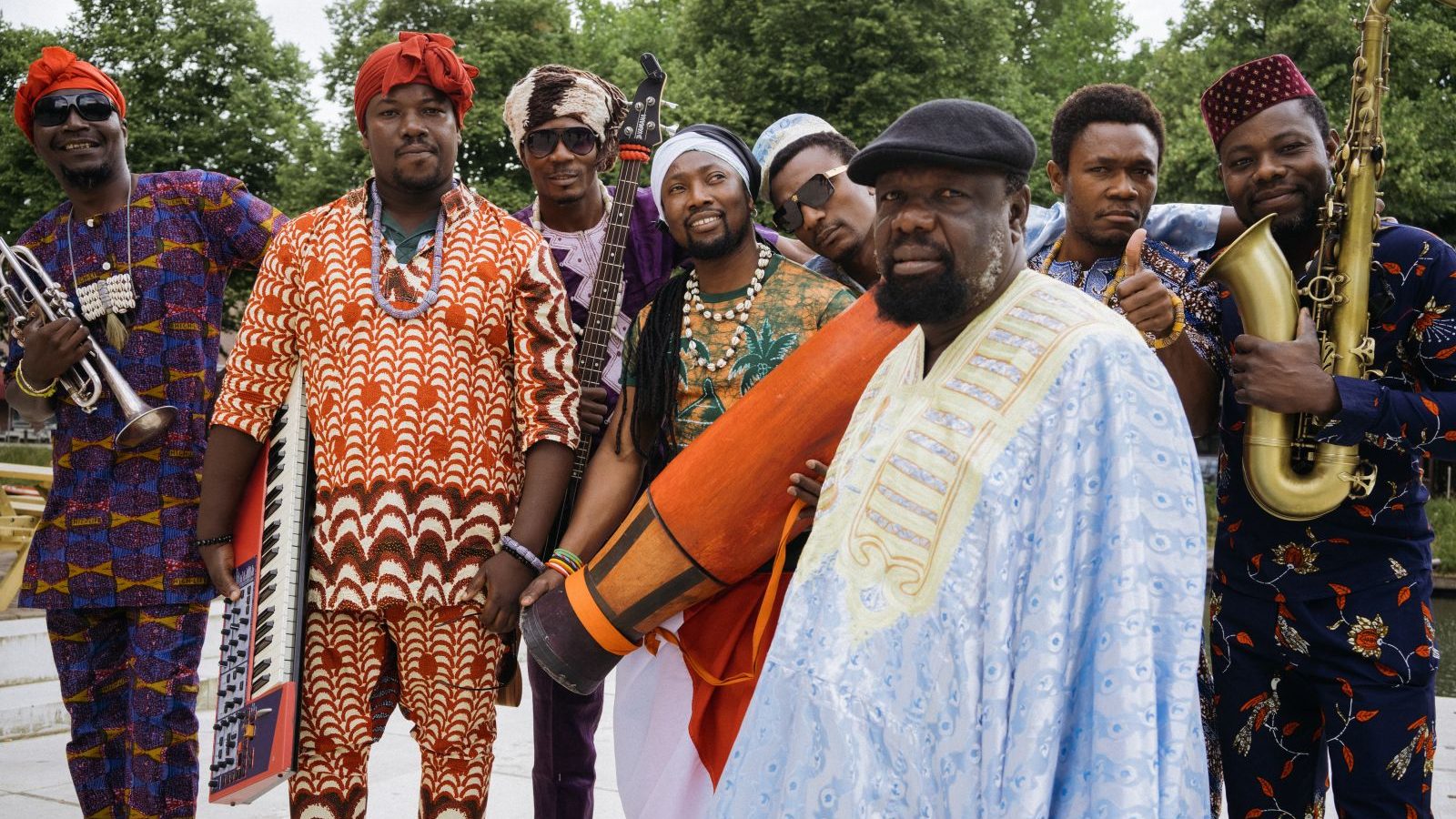Take a good look at the map of West Africa and search for the city of Lomé, and imagine what the music of this place must sound like. A hundred miles to the West lies Accra, Ghana, where highlife emerged in the 1950’s. Another 100 miles to the east lies Cotonou, hometown of the famous Orchestre Poly Rythmo. And yet another 50 miles further, you will enter Lagos, where Fela Kuti created Afrobeat.
All of these aforementioned influences can be heard in the music of one of Lomé’s leading bands: The Togo All Stars. But there is more to it than that: a distinctive Togolese sound drenched in afrofunk and voodoo-rhythms.
Now let’s say you’ve reached Lomé: you walk the winding streets of the Bé neighbourhood, filled with music and voodoo culture. In need of a break, you go down to the beach, where you find the modern world of ‘Africa rising’. You drink a cold bottle of beer under a palm tree and realise that Togo embodies both deep traditions and modernity. This is exactly the sound of the All Stars.
The band combines the best of two generations. Lead singer Aguey Cudjoe was an afrofunk pioneer in Accra back in the 1970’s – when the music of West-Africa was at a creative high – and influenced by American jazz and soul. Next to him you will find the young Awumakuga Otu Rodrigue. As the most talented young singer of Lomé he has made it his mission to carry on the Afrobeat legacy of his idol Fela Kuti. Drummer Agbozo learned the trade with great names like Malian musician Cheikh Tidiane Seck and saxophonist Elga Branco. Before moving to France, he played with the legendary Youssou N’Dour.
The heavy-rhythmic sound of fluid guitars and pulsating horns provide the backbone of the All Stars. Over the years, the band has amassed a spectacular live reputation. Shows at festivals like North Sea Jazz Festival and Down the Rabbit Hole and venues like Paradiso, Amsterdam were received with great enthusiasm.
Since Togo All Stars’ debut album in 2018, they have been reinventing themselves constantly. Creative director Energy Federator (Ekue Leopold Messan) introduced players from abroad for new album Fâ, named after a spiritual system that carries the stories, rhythms, songs and time-tested wisdom of the ancestors. The brass section got help from Jeremi and Aaron Ahouandjinou, members of Benin’s famous brass family. And the diaspora also chips in: Dutch Togolese percussionist Ayaovi Kokousse adds his energy to the band, as does Jean-Baptiste Gbadoe, who is also known as the drummer of Malian star singer Fatoumata Diawara. All members know their way in voodoo, both in its music and its daily workings.
Since Togo and neighbouring country Benin are considered the heart of voodoo culture, voodoo exists at the core of the All Stars’ music. Along with Christianity and Islam, it is considered the leading religion of the country. Voodoo is all about music: every god has his own rhythm and his own chants. Initiated percussionist Ayaovi Kokousse plays them on his traditional drums. Voodoo also stands for dualism, where bad and good meet and where woman and man are the same entity. You cannot talk about one without the other. So there couldn’t be Togo All Stars without the female stars of the band: Agbolotovi Sexy and Dodji Alice.
The influence of the West-African religion on modern music cannot be underestimated, although it often is. In fact, it’s very logical to combine voodoo with funk, since voodoo travelled with the slave trade to the Americas. In ‘The New World’ it was banned by planters who feared spirituality and the beat of the drum. That’s where voodoo got its undeserved bad name. But it survived underground, in music. The chants and beats nested in what we now call jazz, salsa, blues and funk. If you want to hear the original rhythms of the most funky gods on earth, you will have to take that map and find Togo. Or you can go and see the Togo All Stars, who honour this musical legacy.
Audience: Standing







